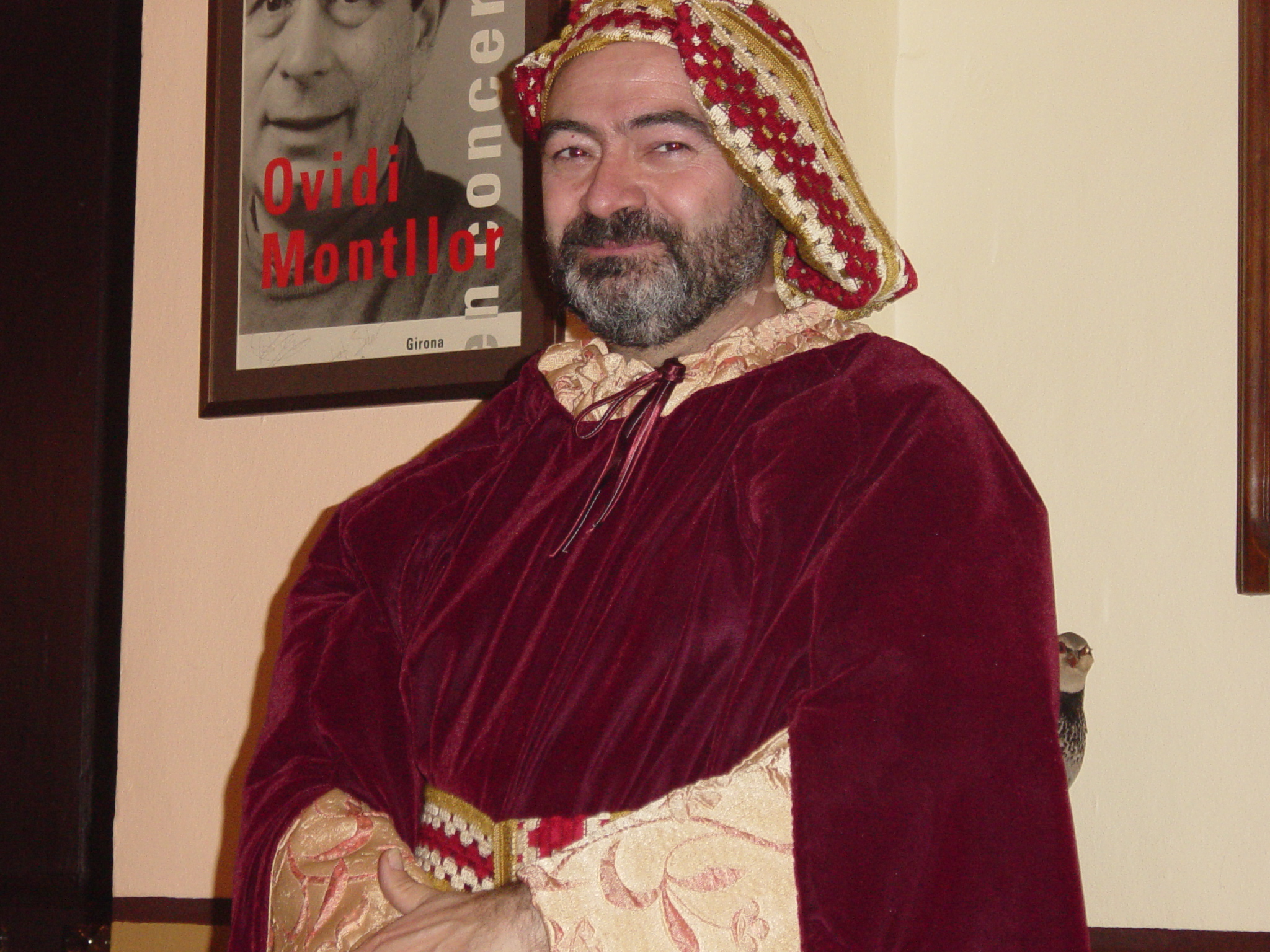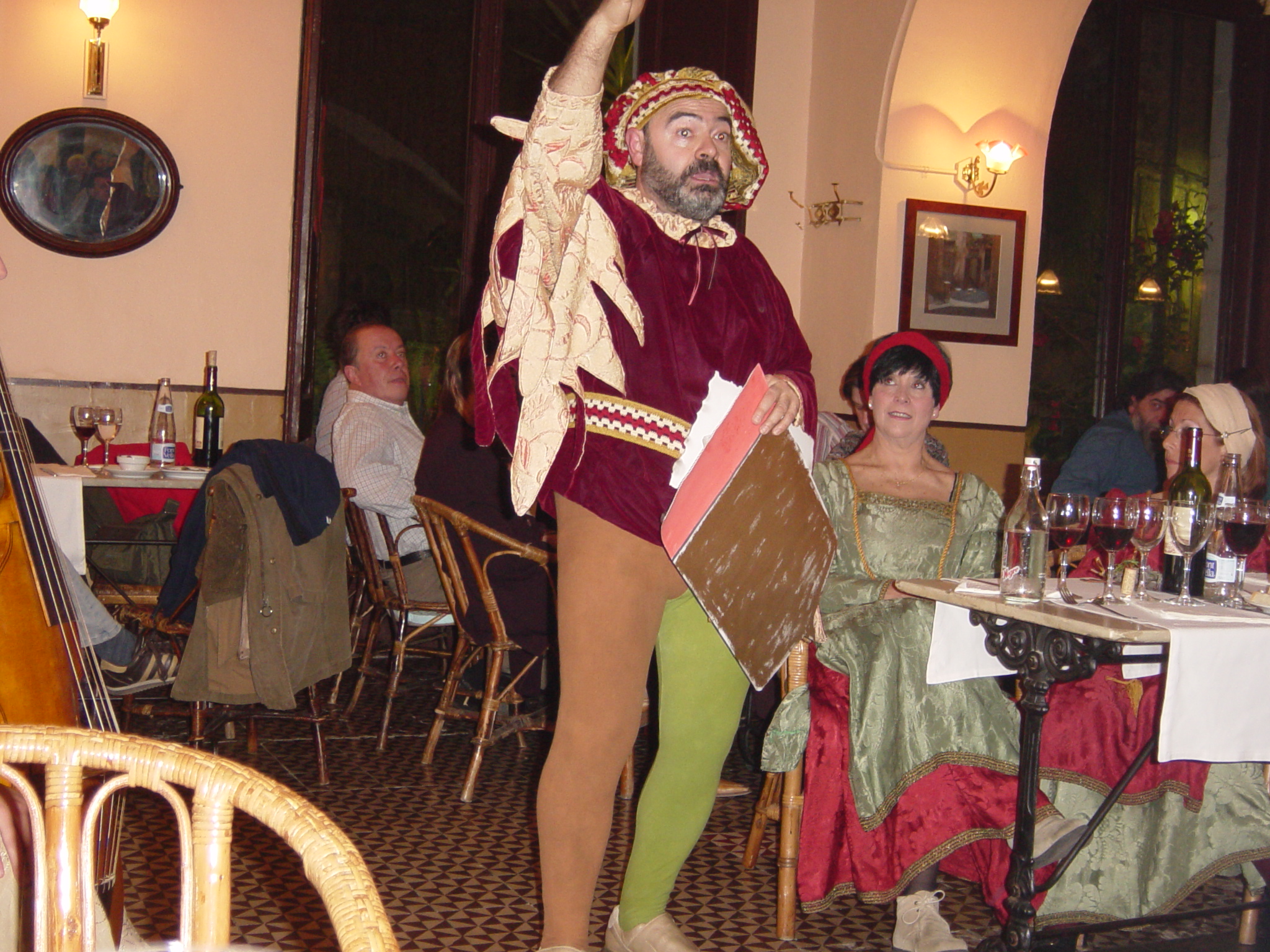Cerverà de Girona
Cerverí de Girona ( sərβəɾi də ʒiɾonə ) (* 1259 in Girona as Guillem de Cervera, † 1285) was a Catalan troubadour.
Cerverí de Girona was one of the most active troubadours, are handed down from the 114 seals (and some other plants) to the present. A ensenhamen of proverbs for his son is also kept to his work, so you can even run out of a total of 130 works. Music of Cerverí has not been preserved.
Cerverí wrote Pastorelas and sirventes. He was a poet at the court of James I the Conqueror and Peter III. the Great. His primary interest was the complexity of court life.
Cerverí was sponsored for some time at the court of Hugo IV and Henry II of Rodez in 1269 and stayed in Spain, where you could find him in the wake of the Prince and later King Peter. In other troubadours as Folquet de Lunel and Dalfinet he went with Peter to Toledo. On April 26, in Riello ( near Cuenca) he got a solidus for his services. His Cobla en sis lengatges ( " seal on six languages " ) imitated the meter of Folquets Al bon rey reys de q'es pretz car or Sordels Bel m'es from motz leugiers a far.
The Planh Si by tristor, by no dol by cossir from August 26, 1276 Cerverí wrote about the death of James I. The troubadour ask the Virgin Mary for the same compassion for Jacob, that he himself was at the end. This refers to the establishment of the Merzedarier in Barcelona. The poet Mathieu de Caersi wrote another Planh for Jacob ( Tant que suy Marritz No.M puese alegrar ) to persänlichen its tone in contrast and intimate poetry Cerveris failed preachy and religious.










